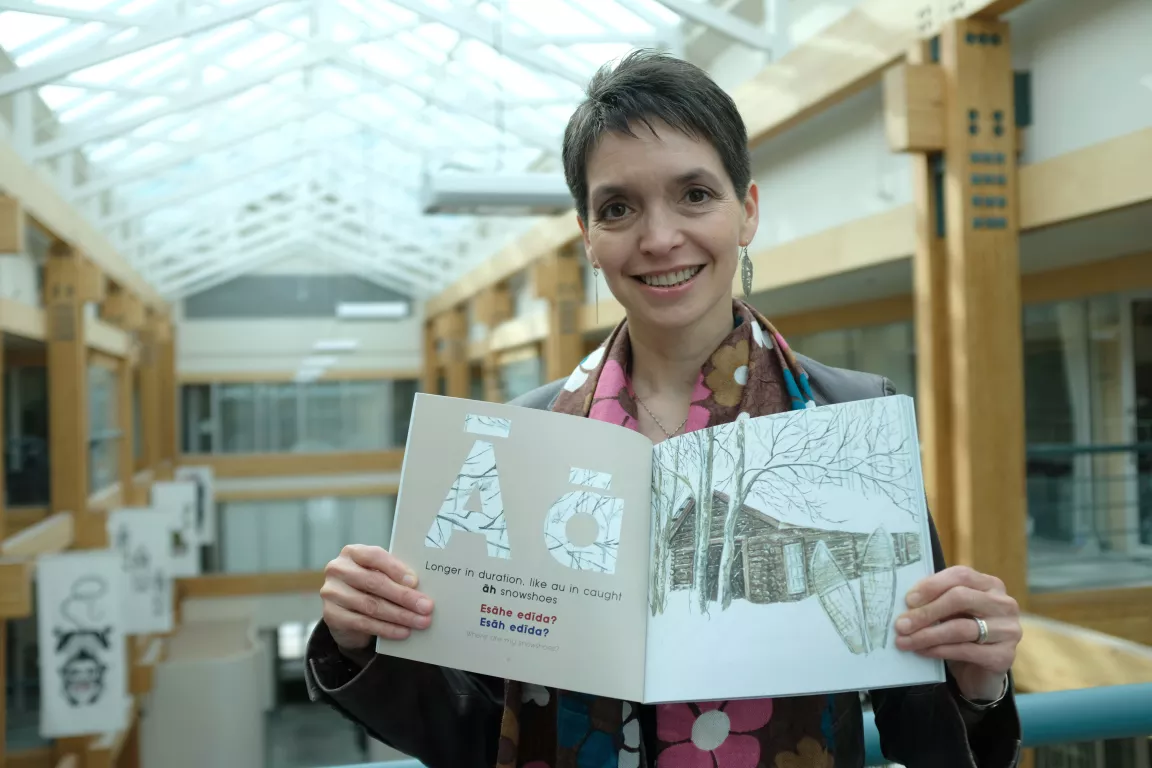Professor Recognized for Language Revitalization Work

Language is a critical building block for society, something that needs to be preserved, nourished and used for a culture to thrive.
University of Northern British Columbia Assistant Professor of First Nations Studies Edōsdi - Dr. Judy Thompson understands the fundamental importance of language revitalization to Indigenous communities across British Columbia and around the world. Edōsdi, which literally translates to “someone who raises up pets and children,” and can be interpreted as “someone who is a teacher,” recently received a 2018 Confederation of University Faculty Associations of British Columbia Distinguished Academic Early in Career Award for service to her community.
“Language can be healing for people,” Edōsdi says. “It is important for us to have safe spaces for our Elders to use our language with each other and to be teaching the next generation of Tahltan speakers.”
For nearly six years, Edōsdi has worked with her nation as the director of Tahltan language and culture. Her academic research has informed Dah Dẕāhge Nodes̱idē, the Tahltan language and culture council. The name translates to “we are speaking our language again,” and the group has had many successes to celebrate.
They have created two language nests, where children between the ages of six months and four years of age are immersed in the language.
“It has been amazing to see the impact of the language nests the past four years,” Edōsdi says. “When I go there and visit and get to see the toddlers understanding and speaking our language, it is very powerful.”
The nests are one step towards Edōsdi’s goal of having more proficient speakers to keep the languages alive for generations to come. The next step could include an immersion elementary school, but Edōsdi is also focused on finding more opportunities for adults to rediscover and learn their language.
“The only way we are going to keep our languages alive is to have it in the home, so we’re working towards that,” she says.
Edōsdi was also the editor of an alphabet book, Dah Dẕāhge Es̱igits, which translates to “we write our language.” The book features Tāłtān words and phrases with accompanying artwork by three Tahltan artists.
Edōsdi’s work with her community ties directly to her research agenda at UNBC, which includes identifying ways to evaluate the success of revitalization efforts. She is currently working on three language revitalization papers, including sharing examples of experiences, activities, and best practices in the nests.
“One of the most important things I’ve found is that we need to share what we are doing with others,” she says. “We have learned from Indigenous scholars, as well as Indigenous nations and communities, involved in similar efforts. Sharing and promoting language revitalization experiences is vital.”